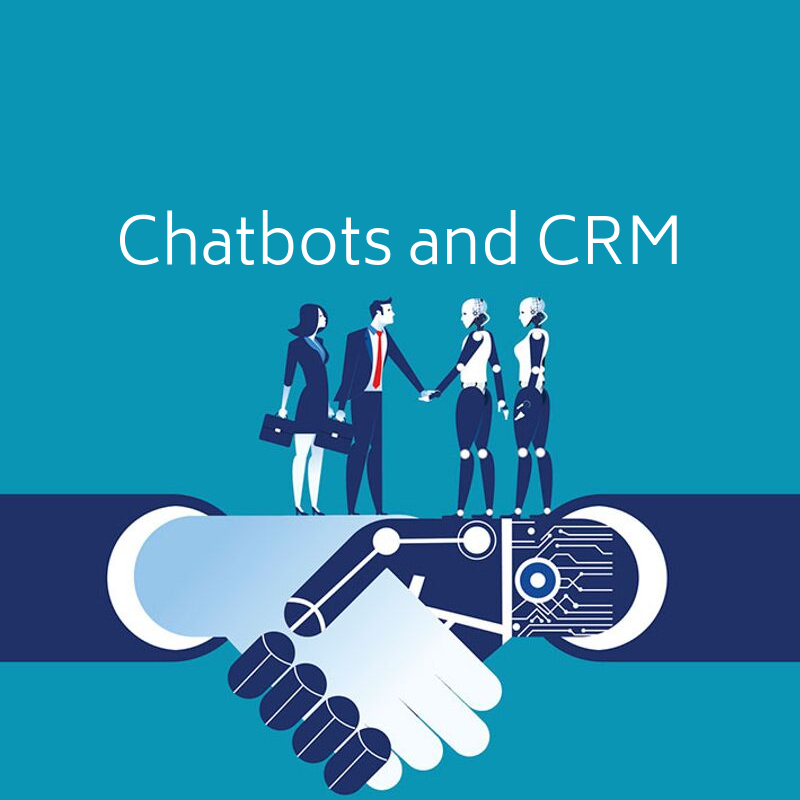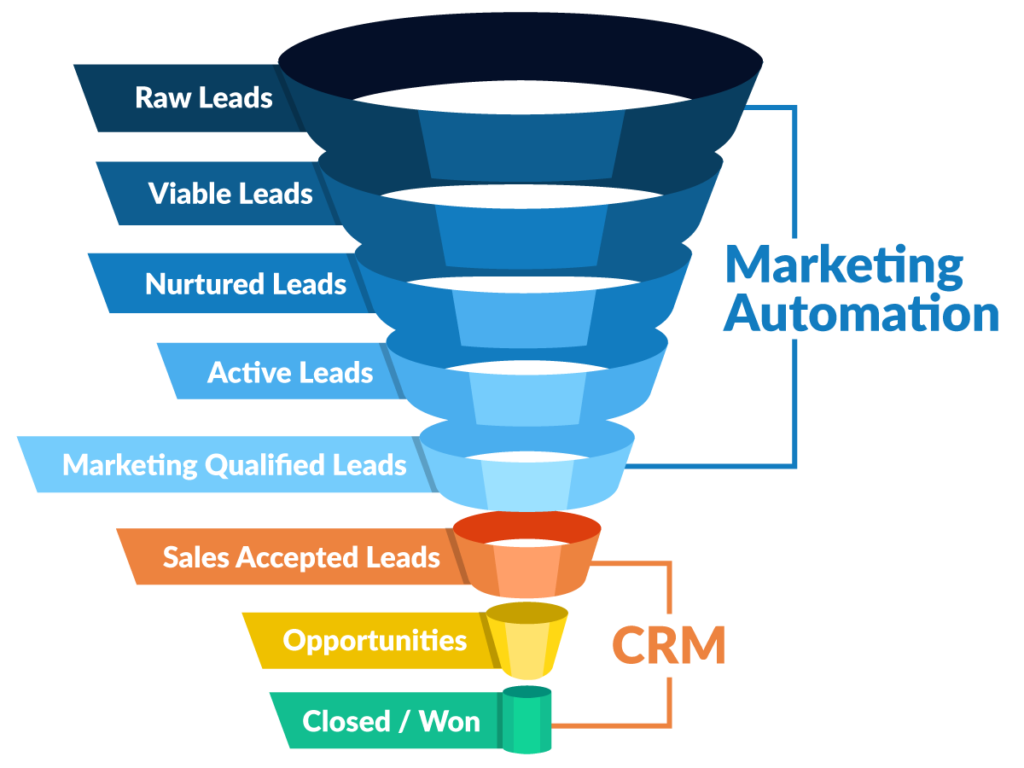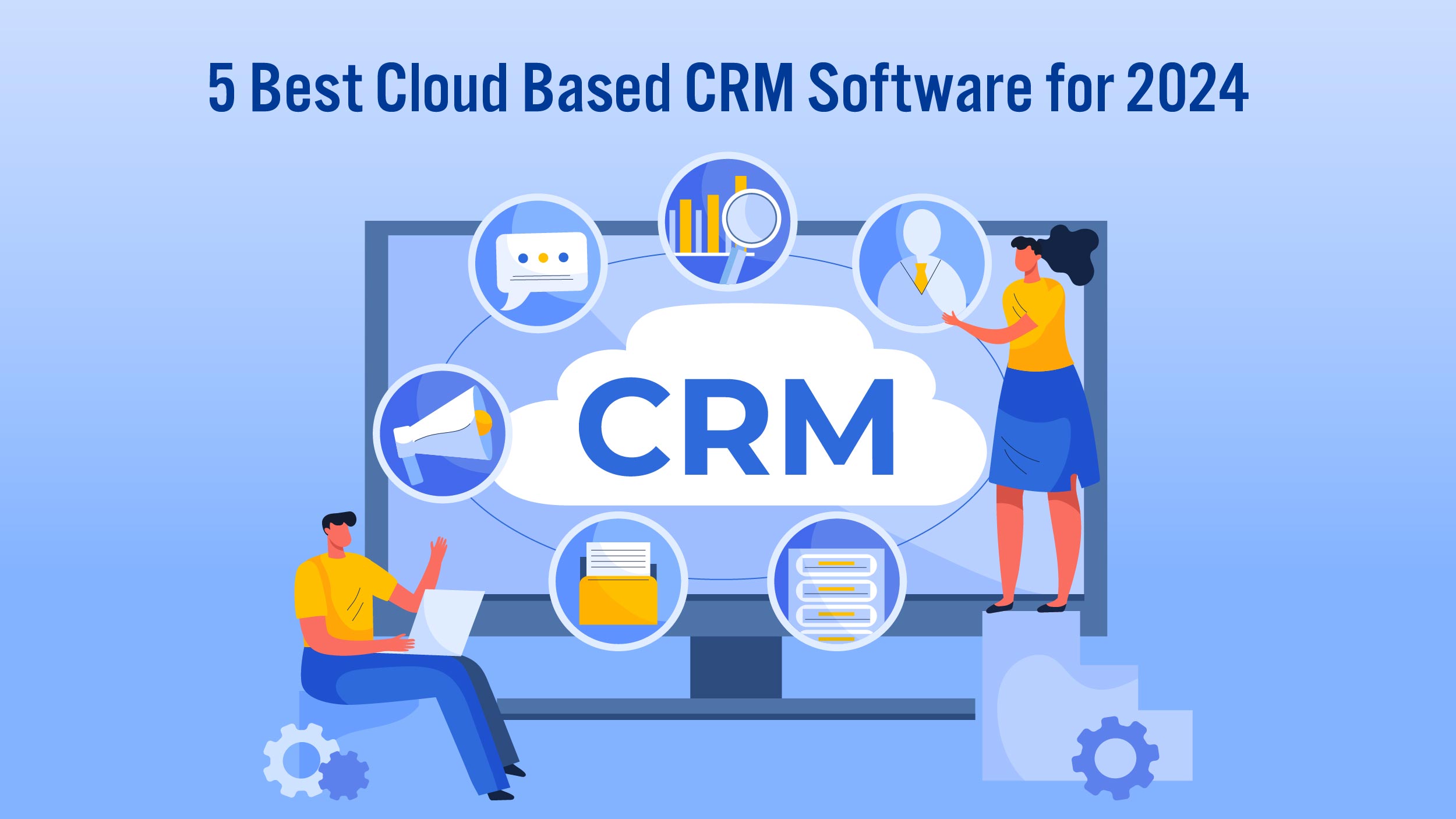Affordable CRM Software for Startups: Streamlining Customer Relationships Efficiently
Affordable CRM Software for Startups introduces a game-changer in managing customer relationships effectively. With a focus on cost-effective solutions and essential features, startups can now streamline their operations seamlessly.
Introduction to CRM Software
Customer Relationship Management (CRM) software is a powerful tool that helps startups manage and analyze interactions with their customers. It centralizes customer data, automates workflows, and improves communication to enhance customer relationships.
Benefits of CRM Software for Startups
- Increased efficiency in managing customer relationships
- Improved customer satisfaction and retention
- Better understanding of customer needs and preferences
- Enhanced sales and marketing strategies
Why Startups Need CRM Software
Startups need CRM software to effectively manage their growing customer base and nurture relationships. As startups scale, it becomes challenging to track interactions and provide personalized experiences without a centralized system.
Popular CRM Software Options for Startups
- HubSpot CRM
- Zoho CRM
- Salesforce CRM
- Pipedrive
Key Features to Look for in CRM Software
- Customizable dashboards
- Contact and lead management
- Integration with other tools
- Automation of repetitive tasks
Streamlining Sales Processes with CRM Software
CRM software helps startups streamline their sales processes by providing insights into customer behavior, tracking sales activities, and automating follow-ups. This leads to more efficient sales pipelines and increased revenue.
Data Security and Privacy in CRM Software
Ensuring data security and privacy is crucial when implementing CRM software for startups to protect sensitive customer information and comply with regulations.
Scalability of CRM Software for Startups
CRM software is designed to scale with startups as they grow their customer base. It allows startups to add more users, customize features, and adapt to changing business needs without compromising performance.
Features to Look for in Affordable CRM Software
When choosing CRM software for your startup, it is essential to consider key features that can help streamline your operations and improve customer relationships.
Customizable Dashboards
- Ability to customize dashboards to display relevant information at a glance.
- Drag-and-drop functionality for easy customization based on user preferences.
- Real-time updates to ensure data is current and actionable.
Contact Management
- Centralized database for storing and managing customer contact information.
- Ability to track communication history and interactions with customers.
- Automated contact syncing and de-duplication to maintain data accuracy.
Sales Pipeline Management
- Visual representation of the sales pipeline to track leads and opportunities.
- Customizable sales stages and probability tracking for accurate forecasting.
- Automated reminders and notifications to keep sales teams on track.
Integration Capabilities
- Seamless integration with other tools and applications used by your startup.
- Ability to connect with email, marketing automation, and e-commerce platforms.
- API access for custom integrations and data syncing.
Reporting and Analytics
- Pre-built reports and dashboards for quick insights into sales performance and customer behavior.
- Customizable reporting options to create tailored reports based on specific metrics.
- Advanced analytics for data-driven decision-making and strategic planning.
Cost-Effective CRM Solutions
When it comes to choosing CRM solutions for startups, cost-effectiveness is a crucial factor to consider. Here, we will explore different strategies and tips to help startups find budget-friendly CRM options without compromising on essential features.
Different Pricing Models
There are various pricing models available for CRM software that are suitable for startups:
- Subscription-based: Startups can opt for a monthly or yearly subscription plan, which can be cost-effective in the long run.
- Pay-per-user: This model allows startups to pay based on the number of users accessing the CRM software, making it scalable and budget-friendly.
- Freemium options: Some CRM providers offer basic features for free, with the option to upgrade to a paid plan for more advanced functionalities.
Tips for Finding Budget-Friendly CRM Solutions
Startups can follow these tips to find affordable CRM solutions:
- Look for discounts for new businesses: Many CRM vendors offer special discounts or deals for startups to help them get started with their CRM journey.
- Opt for open-source platforms: Open-source CRM software can be a cost-effective alternative, as it allows startups to customize and scale their CRM system without high licensing fees.
Balancing Cost with Functionality
It’s essential for startups to balance cost with functionality when selecting CRM software. To make an informed decision, startups can create a comparison table highlighting key features versus pricing for different CRM options. This can help in evaluating which CRM solution offers the best value for money.
Negotiating Pricing with CRM Vendors
Startups can negotiate pricing with CRM vendors to get the best possible deal without compromising essential features. By discussing their specific needs and budget constraints, startups can explore custom pricing options or discounts that suit their financial requirements.
Customization and Scalability
Customization and scalability are crucial aspects of CRM software for startups as they allow businesses to tailor the system to fit their unique needs and accommodate growth over time.
Benefits of Customizable Features
- Customizable workflows: Startups can design workflows that align with their specific processes, improving efficiency and productivity.
- Personalized dashboards: Tailoring dashboards to display relevant information can help teams make informed decisions quickly.
- Integration capabilities: Customizable CRM software can easily integrate with other tools and systems, streamlining operations.
Accommodating Growth through Scalability
- Increased customer base: Scalable CRM solutions can handle a growing number of customers without compromising performance.
- Additional features: As startups expand, scalable CRM software can add new functionalities to support evolving business requirements.
- Flexible pricing: Scalability ensures that startups can adjust their CRM system according to their budget and needs as they grow.
Steps for Customization
To customize CRM software effectively, startups should:
- Identify specific needs: Determine which features are essential for the business and tailor the system accordingly.
- Train employees: Provide training to ensure that team members can utilize customized features efficiently.
- Regularly review and update: Continuously assess the performance of customized features and make adjustments as needed.
Key Factors for Scalability
When evaluating the scalability of CRM software, startups should consider:
- Cloud-based infrastructure: Cloud CRM solutions offer scalability by providing resources on-demand.
- Data management capabilities: Scalable CRM systems should efficiently handle large volumes of data as the business grows.
- Scalable pricing models: Look for CRM software that offers flexible pricing plans to accommodate growth without incurring high costs.
Comparison between Off-the-Shelf and Customizable Solutions
Off-the-shelf CRM solutions offer standard features that may not fully meet a startup’s needs, while customizable solutions allow businesses to tailor the system to their requirements. Customizable CRM software provides a more personalized and adaptable solution for startups looking to scale efficiently.
| Level of Customization | Impact on Efficiency | Impact on Productivity |
|---|---|---|
| Basic customization | Minor improvements | Some enhancement |
| Intermediate customization | Significant efficiency gains | Improved productivity |
| Advanced customization | Optimized workflows | Maximized productivity |
A startup successfully scaled their CRM software by customizing the system to automate lead generation and customer follow-up processes, resulting in a 30% increase in sales within six months.
Integration with Other Tools
Integrating CRM software with other tools used by startups is crucial for enhancing efficiency and productivity.
Popular Tools for CRM Integration
- 1. Email Marketing Platforms
- 2. Accounting Software
- 3. Project Management Tools
- 4. Social Media Platforms
By seamlessly integrating with these tools, CRM software can streamline processes and ensure smooth data flow across different platforms.
User-Friendly Interface
Having a user-friendly interface in CRM software is crucial for startups as it can greatly impact user adoption and overall efficiency. A well-designed interface makes it easier for employees to navigate the system, input data, and access important information quickly. Here are some tips on evaluating the usability of CRM software interfaces:
Tips for Evaluating Usability
- Look for a clean and intuitive layout that is easy to navigate.
- Check if the software offers customizable dashboards for each user’s specific needs.
- Ensure that important features are easily accessible and well-organized.
- Test the software with a focus group to gather feedback on user experience.
An intuitive interface can improve user adoption by reducing the learning curve for new employees. When the CRM software is easy to use, employees are more likely to embrace it and incorporate it into their daily workflow. This, in turn, can lead to increased productivity and efficiency within the organization.
Data Security and Compliance
Data security and compliance are crucial aspects that startups need to consider when choosing a CRM software solution. Ensuring the protection of sensitive information and adhering to industry standards can help in building trust with customers and avoiding costly data breaches.
Role of Encryption in Data Security
Encryption plays a vital role in safeguarding data within CRM software. By converting data into a secure code that can only be accessed with the right decryption key, encryption helps in preventing unauthorized access to sensitive information. This ensures that customer data, financial records, and other confidential details are protected from cyber threats.
Compliance Standards for Startups
Startups should consider compliance standards such as HIPAA (Health Insurance Portability and Accountability Act) for healthcare data and PCI DSS (Payment Card Industry Data Security Standard) for credit card information when selecting a CRM platform. Adhering to these regulations helps in maintaining the confidentiality and integrity of data, ensuring legal compliance and trustworthiness.
Data Security Audit Process
Conducting a data security audit within a CRM system involves assessing the current security measures in place, identifying vulnerabilities, and implementing necessary controls to mitigate risks. Startups should regularly review user access controls, encryption protocols, and data backup procedures to ensure robust data security practices.
User Access Controls and Permissions
User access controls and permissions are essential for maintaining data security within CRM software. By defining roles and setting access levels based on job responsibilities, startups can limit the exposure of sensitive information to authorized personnel only. This helps in preventing unauthorized users from accessing confidential data and reduces the risk of data breaches.
Implications of Data Breaches on Startups
Data breaches can have devastating consequences for startup businesses using CRM software. Apart from financial losses and reputational damage, startups may face legal penalties for failing to protect customer data. It is crucial for startups to prioritize data security measures and invest in reliable CRM solutions to safeguard against potential cyber threats.
Customer Support and Training
In the world of CRM software for startups, having robust customer support and training options is crucial for ensuring the successful implementation and utilization of the system. Startups often have limited resources and expertise, so having access to proper support and training can make a significant difference in their CRM experience.
Types of Support and Training Resources
- 24/7 Technical Support: Immediate assistance for any technical issues or questions that may arise.
- Online Knowledge Base: A repository of articles, tutorials, and guides to help users troubleshoot common problems or learn new features.
- Live Training Sessions: Interactive webinars or virtual training sessions conducted by CRM experts to guide users on best practices and advanced functionalities.
- Dedicated Account Manager: A single point of contact within the CRM provider’s team who can provide personalized assistance and guidance.
Leveraging Customer Support and Training
- Regularly Engage with Support: Encourage your team to reach out to customer support whenever they encounter challenges or have questions. Don’t hesitate to ask for help.
- Utilize Training Resources: Make sure to take advantage of all available training materials to ensure that your team is well-versed in using the CRM software effectively.
- Provide Ongoing Training: Invest in continuous training sessions to keep your team updated on new features and functionalities to maximize the benefits of the CRM software.
- Feedback Loop: Provide feedback to the CRM provider on the effectiveness of their support and training resources to help them improve and tailor their services to better suit your needs.
Case Studies and Success Stories
In this section, we will explore real-life case studies of startups that have successfully implemented affordable CRM software, analyzing their strategies for growth and the benefits they experienced after adopting CRM solutions.
Startup A: Boosting Sales with CRM
- Startup A, a small e-commerce business, implemented an affordable CRM software to streamline their sales process.
- By tracking customer interactions and analyzing data, Startup A was able to personalize their marketing campaigns and improve customer retention.
- As a result, Startup A saw a 20% increase in sales within the first six months of using CRM software.
Startup B: Enhancing Customer Service with CRM
- Startup B, a tech consulting firm, integrated affordable CRM software to manage customer inquiries and support tickets.
- With CRM tools for tracking communication history, Startup B improved response times and customer satisfaction rates.
- Startup B reported a 30% reduction in customer service resolution time and a 15% increase in client referrals after implementing CRM software.
Startup C: Scaling Operations with CRM
- Startup C, a software development company, utilized affordable CRM software to streamline project management and client communication.
- By automating repetitive tasks and tracking project milestones, Startup C increased efficiency and reduced errors in project delivery.
- Startup C experienced a 25% boost in project completion rates and a 40% increase in client satisfaction scores post CRM implementation.
Implementation Best Practices
Implementing CRM software effectively is crucial for startups to streamline their operations and enhance customer relationships. By following best practices, startups can maximize the benefits of CRM software and avoid common pitfalls.
Step-by-Step Guide for Effective Implementation
- 1. Define Objectives: Clearly outline the goals and objectives you want to achieve with CRM software.
- 2. Select the Right CRM Solution: Choose a CRM software that aligns with your business needs and budget constraints.
- 3. Customize and Configure: Tailor the CRM system to match your business processes and workflows.
- 4. Train Employees: Provide comprehensive training to ensure all team members understand how to use the CRM software effectively.
- 5. Data Migration: Transfer existing data accurately to the new CRM system without loss or errors.
Common Pitfalls to Avoid
- Avoid inadequate training leading to underutilization of CRM software.
- Avoid poor data quality by ensuring data accuracy and consistency during migration.
- Avoid overcustomization that may complicate the system and hinder user adoption.
Tips for a Smooth Transition
- Communicate with the team about the benefits of CRM software to encourage buy-in.
- Start with a pilot project to test the CRM system before full-scale implementation.
- Provide ongoing support and feedback channels for employees to address any issues promptly.
Mobile Compatibility
Mobile compatibility is crucial for startups utilizing CRM software to streamline their operations. In today’s fast-paced business environment, the ability to access CRM tools on mobile devices is essential for remote work and on-the-go productivity. Let’s delve into the significance of mobile compatibility and how it can benefit startup businesses.
Benefits of Mobile Compatibility
- Flexibility for remote work and real-time updates
- Improved accessibility and responsiveness
- Enhanced collaboration among team members
Enhancing Mobile User Experience
- Intuitive mobile interface design for ease of use
- Optimized features for smaller screens and touch navigation
- Offline access capabilities for data availability anytime, anywhere
Utilizing Push Notifications
- Instant updates on new leads, tasks, and customer interactions
- Enhanced user engagement and responsiveness
- Customizable notification settings for personalized alerts
Setting Up CRM Mobile App
- Download and install the CRM mobile app from the app store
- Log in with your credentials to synchronize data with the desktop version
- Adjust settings for seamless integration and data sync
Ensuring Data Security
- Implementing encryption protocols for secure data transmission
- User authentication and access controls for safeguarding sensitive information
- Regular security updates and compliance with data protection regulations
Impact on Efficiency and Productivity
- Case studies showcasing improved response times and customer service
- Increased sales conversions and lead nurturing through mobile access
- Enhanced team coordination and task management for better outcomes
Feedback and Reviews
Seeking feedback and reviews before selecting CRM software for startups is crucial for making an informed decision. Reviews from current users can provide valuable insights into the strengths and weaknesses of a particular CRM solution, helping startups evaluate its suitability for their specific needs.
Where to Find Reliable Reviews and Testimonials
- Online review platforms like Capterra, G2, and TrustRadius offer a wealth of user-generated feedback on various CRM software options.
- Industry-specific forums and communities can also be valuable sources of firsthand experiences and recommendations from fellow startup owners.
- Seeking recommendations from mentors, advisors, or other startups in your network can provide personalized insights and recommendations based on real-world usage.
Tips for Analyzing Feedback
- Look for patterns in the feedback to identify common pros and cons mentioned by multiple users.
- Pay attention to reviews that address specific features or functionalities that are important to your startup’s operations.
- Consider the credibility of the reviewer by checking the reviewer’s profile, industry background, and the level of detail provided in the review.
- Balance positive and negative feedback to get a well-rounded view of the CRM software’s performance and user satisfaction.
Utilizing Comparison Tables
Creating a comparison table for the top 5 CRM software options for startups can streamline the decision-making process by highlighting key features, pricing, customer reviews, scalability, and customization options in a clear and concise format.
Comparison Table Example
| CRM Software | Key Features | Pricing | Customer Reviews | Scalability & Customization |
|---|---|---|---|---|
| CRM Software A | Feature 1, Feature 2, Feature 3 | $X/month | 4.5/5 stars | Highly Scalable, Limited Customization |
Seeking Expert Opinions
Expert opinions on the latest trends in CRM software can provide valuable insights into emerging technologies, best practices, and integration capabilities that startups can leverage to enhance their CRM strategy.
Expert Insights
- Leading industry experts like Forrester, Gartner, and CRM Magazine offer comprehensive reports and analysis on CRM software trends and innovations.
- Consulting firms specializing in CRM solutions can provide tailored recommendations and insights based on their expertise and experience in the field.
- Attending industry conferences, webinars, and workshops can also offer opportunities to network with experts and gain firsthand knowledge on the evolving landscape of CRM software.
Exploring Free Trials
Taking advantage of free trials offered by CRM software providers can give startups the opportunity to test the platform’s features, functionality, and usability before making a commitment.
Free Trials for Startups
- CRM providers like Salesforce, HubSpot, and Zoho offer free trials ranging from 14 to 30 days, allowing startups to explore the software’s capabilities at no cost.
- During the free trial period, startups should focus on testing key features, importing sample data, and evaluating the software’s compatibility with their existing systems.
- Engaging with customer support during the trial can help startups address any questions or concerns, ensuring a smooth evaluation process and informed decision-making.
Future Trends in Affordable CRM Software
In the ever-evolving landscape of CRM software, startups need to stay ahead of the curve by understanding the latest trends shaping the industry. By exploring emerging trends in CRM software, startups can make informed decisions about the solutions that best suit their needs and budget.
Advancements in Technology and CRM Development
- Advancements in technology, such as AI and automation, are revolutionizing the CRM industry and making affordable solutions more accessible to startups.
- Startups can benefit from predictive analytics, machine learning algorithms, and chatbots integrated into CRM systems to streamline processes and improve customer interactions.
- By leveraging these technological advancements, startups can enhance their customer relationships and drive business growth efficiently.
Customization Options in Affordable CRM Software
- Startups should compare and contrast the customization options available in different affordable CRM software to choose a solution that aligns with their unique business requirements.
- Look for customizable dashboards, fields, workflows, and reporting features that can be tailored to meet specific business needs without breaking the bank.
- Scalable and flexible CRM solutions allow startups to adapt and grow their systems as their business expands, ensuring long-term viability and success.
AI Integration and Scalability
- The integration of AI capabilities in CRM software enhances scalability by automating repetitive tasks, analyzing data insights, and providing personalized customer experiences.
- Startups can leverage AI-driven features like lead scoring, predictive analytics, and customer segmentation to optimize their sales and marketing strategies for better results.
- By investing in AI-integrated CRM solutions, startups can future-proof their operations and stay competitive in a rapidly changing business environment.
Implementing a Cost-Effective CRM System
- Startups can follow a step-by-step guide to implementing a cost-effective CRM system by first defining their objectives, selecting the right software, and customizing it to meet their needs.
- Training employees on how to use the CRM system effectively, integrating it with existing tools, and continuously monitoring and optimizing its performance are essential steps for success.
- By focusing on cost-effectiveness and efficiency, startups can maximize the benefits of CRM software without overspending on unnecessary features.
Data Security Features and Best Practices
- When evaluating affordable CRM software options, startups should prioritize data security features like encryption, access controls, regular backups, and compliance with industry regulations.
- Implement best practices for data protection, such as securing user permissions, monitoring system activity, and conducting regular security audits to prevent data breaches and safeguard sensitive information.
- By prioritizing data security in their CRM systems, startups can build trust with customers, protect their reputation, and ensure compliance with data privacy laws.
End of Discussion
In conclusion, Affordable CRM Software for Startups offers a glimpse into a world where startups can thrive through efficient customer relationship management. By embracing customizable solutions, robust support, and seamless integration, startups can pave their way to success in the competitive market landscape.



